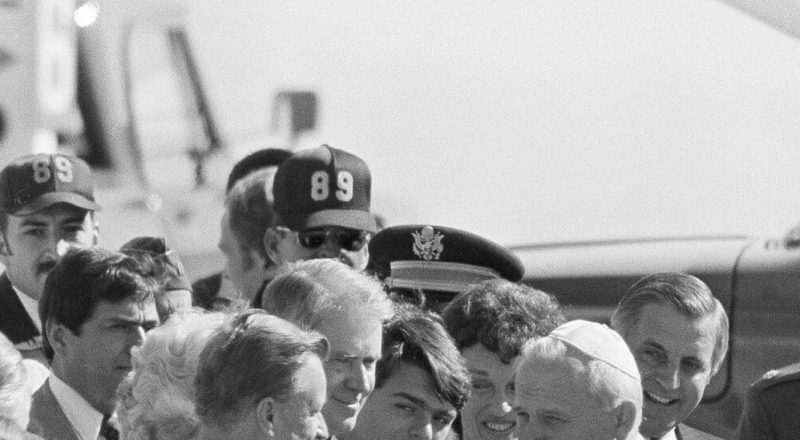In 1979, during John Paul II’s first visit to the United States as pope, he met with President Jimmy Carter at the White House. Shortly after that, he invited Zbigniew Brzezinski, Carter’s national security adviser, to dinner at the Vatican Embassy in Washington. Along with world affairs, Carter wanted to discuss declining morals with the recently elected pope, but Brzezinski had more practical subjects in mind.
For the pontiff and the adviser, their mutual obsession was the Soviet Union. Over a simple meal at the Apostolic Nunciature of the Holy See, they explored how they could together weaken Moscow’s grip over its captive nations. Brzezinski was stunned by the pope’s geopolitical knowledge. He joked that Carter was more like a religious leader while the pope seemed more like a world statesman. The vicar of Christ affirmed the quip with a belly laugh, Brzezinski noted in his personal diary, to which I acquired exclusive access.
From that dinner onward, the two Polish-born figures — one the first non-Italian pope in 455 years, the other America’s first (and to date, probably the only) Polish-speaking grand strategist — became intimate allies.
Their serendipitous relationship proved critical in late 1980 in dissuading the Soviets from invading Poland, where the Solidarity movement had just emerged as a serious challenge to the Communist government. It was a partnership sustained by a running dialogue conducted during Brzezinski’s visits to the Vatican, in long handwritten correspondence and over the phone. His White House speed dial had P for “pope.”
John Paul’s relationship with Brzezinski is a vivid example of how diplomacy works when there is mutual trust. Good chemistry is rare but extremely productive. Sustained dialogue with both friends and adversaries in today’s volatile world is, if anything, even more critical. The ability at a tense moment to pick up the phone and know that you can trust the person on the other end is the fruit of constant gardening.
Yet it is increasingly hard to find the time. Technology means that presidential envoys are always within White House reach to respond to the cascade of competing demands. The world is also a more complex place than it was 40 years ago, and U.S. diplomats have rarely been held in lower regard at home. Twenty-four-hour media scrutiny also makes secrecy far harder. Henry Kissinger’s covert visit to Beijing in 1971 to pave the way for U.S. rapprochement with Mao Zedong’s China is hard to imagine today.
